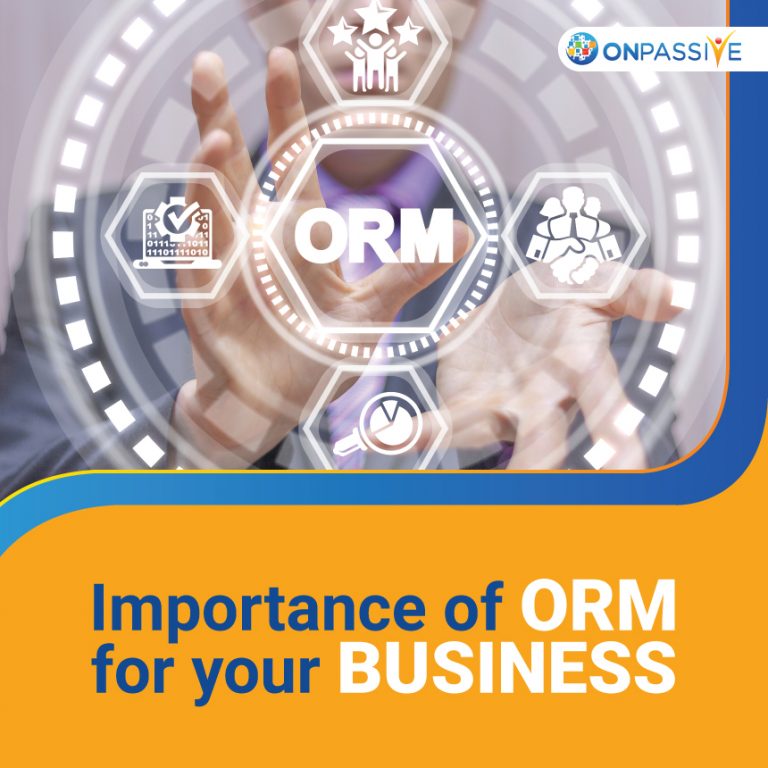
Online Reputation Management
Online Reputation Management (ORM) is a concept which aims to create and cultivate a positive name to your company and maintain your brand name online. ORM makes sure that your brand is represented positively to your potential online customers.
Online reputation management keeps monitoring and addressing any negative content that could damage your brand or company’s reputation. ORM mainly aims to prevent and solve problems that are directed at creating a negative impact on your business.
The functions of Online Reputation Management include
- Responding to the positive or negative reviews online about your brand or company, either by thanking them for the positive feedback or by addressing the concerns.
- Sharing positive reviews on social media and promoting them through various paid or owned channels, posting them on the website, creating banners, promoting through paid ads etc.
- Being proactive and requesting customers to leave feedback about your brand and organization.
- Using ORM software to easily analyze customer reviews and distribute them evenly to popular online review sites.
- Adding review schema markup to your company’s website. With this system websites can display their reviews on search engine results.
Rules of effective Online Reputation Management
An efficient ORM strategy can be beneficial for your business. The eight key rules for an effective ORM strategy are as follows :
1. Keep monitoring your online reputation regularly
You need to regularly monitor your online reputation by using a private browser and search for your brand. A list of sites appears when you search for your company, make a note of them and check the impression created by them. Read any customer reviews if they are displayed. Customer reviews are critical to understand what consumers think of your brand.
2. Optimize your website
To maintain a positive reputation for your business, SEO service is a great option and optimization of your website boosts your sales. You can have control over your organization’s information with a high ranking website and social media pages. You can control the information received by the consumers by having a dominating Google rank. Businesses always need to follow a proactive approach to get feedback from customers.
3. Encourage and engage with positive reviews
Online reviews will always have a great impact on customer’s decision making. Positive reviews act as a guide for consumers who are planning to make new purchases. You can even get ranked higher on Google with positive review sites. You need to engage with customers and encourage them to give feedback on their positive experiences that highlight your brand or products. Make sure to thank your customers for their positive reviews to maintain a better connection with them.
4. Manage negative reviews
Negative or bad reviews can damage your business reputation and can have a direct impact on your sales. Never ignore a negative review, first carefully note negative reviews and address the problems and concerns of your consumers. Maintain a clear policy for such situations, always be polite, apologize to the customers for their bad experiences with your business, and handle the issue carefully. Quick responses are critical in such situations.
5. Create an ORM strategy
Set up online reputation management goals and objectives and balance the factors that might impact your business decisions. Be clear about what you want to communicate about your brand with your customers. Define your boundaries and limitations on allocations for ORM. Prioritize the tasks that need to be addressed first and be realistic about your online reputation management approach.
6. Be social
For a better online reputation management, you need to be very active on social media. A B2B company can always use LinkedIn to keep a check on online reputation and social media marketing. You need to be socially active on all social media platforms and monitor any reviews about your brand’s products or services. To support your brand image, you can even take the advice and suggestions of any ORM agency for the right activities on social media.
7. Create valuable content for your brand
The content that you create for your brand will play a massive role in your brand positioning and managing your brand’s reputation. You need to regularly update relevant content about your brand on social media to create a good reputation. Your content impacts the customer’s view of your business and products.
8. Choose the right influencer
Choosing the right influencer to promote your brand is essential to your business as a part of an online marketing strategy. Influencer marketing is one of the most common practices followed in digital marketing.
Collaborating with the right influencer helps you get more customers and increases your brand’s reputation with the right audience.
By following the rules mentioned above, you can successfully maintain a positive online reputation for your business. Online reputation management is vital to any business because most of the business is done online, and many customers always keep looking for online reviews before buying any products.
ORM is an essential part of the growth strategy for any business. It is an online version of word of mouth and helps you get valuable feedback about your business.
To conclude
In the age of social media, users keep posting comments and reviews almost every single second. Therefore, maintaining a positive online reputation has become an essential part of the business. ORM helps firms understand users’ experiences with their brand’s products and services by monitoring the online reviews and search activities.
By addressing any negative or positive reviews and engaging with customers, organizations can serve them better by enhancing their customer service and provide a better user experience.


